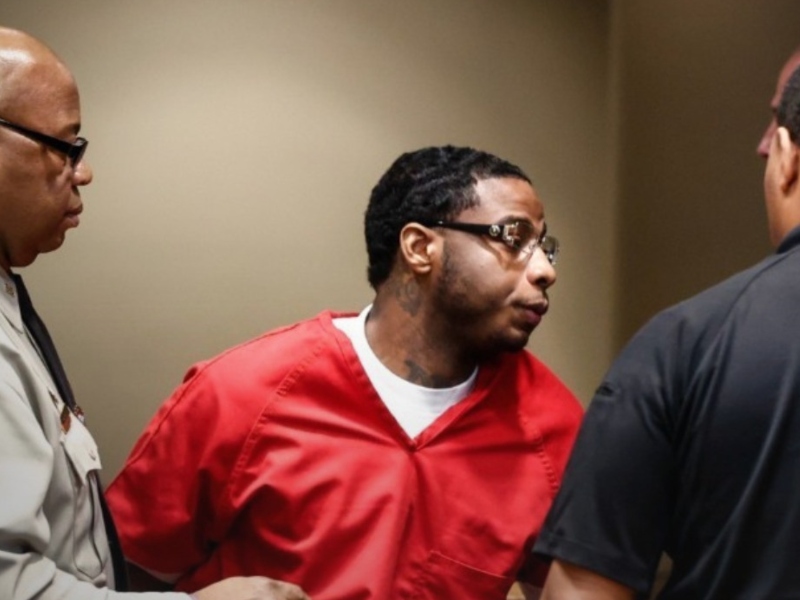Judge Jennifer J. Mitchell has ruled to move the trial of two men accused of killing rapper Young Dolph outside of Memphis due to overwhelming media attention surrounding the case.
The pivotal ruling comes in response to a change of venue motion filed by Justin Johnson’s lawyer, Luke Evans, who argued that the intense media coverage and public outrage in Memphis would prevent his client from receiving a fair trial.
Both Johnson and Cornelius Smith Jr. have pleaded not guilty to first-degree murder charges in the fatal shooting of Young Dolph, which occurred in November 2021 while the rapper was buying cookies at a Memphis bakery.
Judge Mitchell expressed concern that jurors from Shelby County may be influenced by media coverage and public sentiment, emphasizing the need for an impartial jury to render a verdict based solely on evidence presented in court.
Young Dolph, known for his charitable works and independent approach to the music business, was revered in Memphis, adding to the sensitivity of the case.
Prosecutor Paul Hagerman recommended sending questionnaires to a potential jury pool in Shelby County to assess the impact of media coverage and social media commentary. However, Mitchell noted that this process could further delay the trial, which has already been pushed back from its initial date.
Despite the change of venue, Hagerman affirmed that prosecutors remain committed to pursuing justice, indicating their readiness to proceed with the trial regardless of the location of the jury.
The trial of Johnson and Smith is scheduled for June 3, with further decisions regarding the jury’s origin to be made by the court at a later date.
Meanwhile, two other individuals have been implicated in the killing, with Hernandez Govan pleading not guilty to organizing the attack, and Jermarcus Johnson pleading guilty to serving as an accessory after the fact by aiding the accused shooters while evading authorities.
Legal Implications
The decision by Judge Jennifer J. Mitchell to grant a change of venue in the trial of the two men accused of killing rapper Young Dolph has significant legal implications.
- Fair Trial Rights
One of the most fundamental principles of the legal system is that defendants have the right to a fair trial. This includes the right to be judged by an impartial jury that has not been unduly influenced by external factors such as media coverage or public sentiment.
By moving the trial outside of Memphis, where the crime occurred and where there has been intense media coverage and public outcry, the judge is seeking to ensure that the defendants receive a fair trial.
- Prejudicial Publicity
Prejudicial pretrial publicity refers to media coverage that could prejudice potential jurors and make it difficult for defendants to receive a fair trial in the jurisdiction where the crime occurred. In high-profile cases like this one, where there has been extensive media coverage and public interest, there is a risk that potential jurors could be influenced by what they have seen or heard in the media. Moving the trial to a different location with less media attention mitigates this risk.
- Judicial Discretion
The decision to change the venue of a trial is within the discretion of the presiding judge. Judges have the authority to make such decisions based on their assessment of the circumstances surrounding the case, including the extent of media coverage, the nature of the crime, and the likelihood of finding an impartial jury in the original jurisdiction.
Judge Mitchell’s decision reflects her determination that holding the trial in Memphis would pose a risk to the defendants’ right to a fair trial.
- Efficiency and Justice
While changing the venue of a trial may introduce logistical challenges and delays, as noted by Prosecutor Paul Hagerman, ensuring a fair trial is paramount to upholding the principles of justice.
Despite potential delays, the decision ultimately serves the interests of justice by reducing the likelihood of prejudicing the jury and safeguarding the defendants’ right to a fair trial.
Overall, the judge’s decision to change the venue of the trial is aimed at protecting the defendants’ rights, mitigating the influence of prejudicial publicity, and upholding the integrity of the judicial process.

